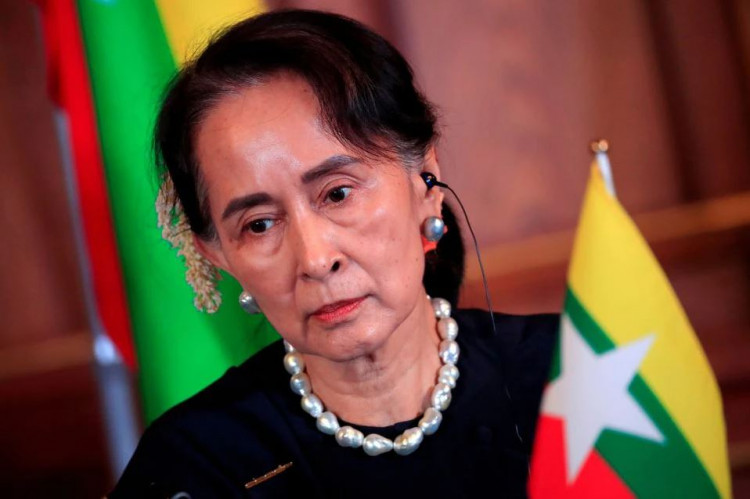A military court in Myanmar has sentenced former leader Aung San Suu Kyi, as well as her former adviser, to three years in prison, reports say.
Sources with knowledge of court proceedings told CNN that the Myanmar military court has sentenced the Nobel laureate and her Australian adviser to three years in prison for supposedly violating the Official State Secrets Act.
Sean Turnell, an economist at the Macquarie University in Sydney, served as special economic consultant to Suu Kyi and her cabinet. Turnell was also given the same sentence for allegedly violating state secrets.
Both Suu Kyi and Turnell denied the allegations hurled against them. This is the latest of verdicts meted out against the former State Counsellor of Myanmar after she was seized by the military junta. Suu Kyi faces a total of 23 years of prison time.
Forced Removal
Myanmar military, known as the Tatmadaw, held a coup and seized power early last year. State Counsellor Suu Kyi and President Win Myint were both arrested based on allegations of voter fraud.
The Tatmadaw claim that Suu Kyi's landslide victory was marred by fraud, and then removed her from position by force.
Since then, the former minister of foreign affairs had been accused of several things, and verdicts have been made against her. She was first charged with violating state secrets last year. Earlier this year, she was handed a three-year sentence over charges of voter fraud.
Suu Kyi has denied all of these allegations, and her supporters are standing by her in agreement that all of these are baseless politically-motivated charges.
Innocents Are Affected As Well
The duly-elected State Counsellor is not the only one who has been badly affected by the military junta. Since the coup, there has been a steady attack against the freedoms and rights of the Burmese people in different places.
Rights groups and observers revealed that state executions have returned, and attacks on the general population have increased. Thousands of people have been killed on the streets and villages. The Tatmadaw even attacked schools as well.
Gwen Robinson, a Myanmar expert at Chulalongkorn University in Bangkok, told the BBC earlier that the Tatmadaw are "very, very steeped in this ultra-nationalist ideology."
The Tatmadaw see minority ethnic groups as people who do not deserve a place in Myanmar and should be pacified or eliminated if they will "upset the unity and stability of the country." They also see protestors as "traitors" who need to be removed.






